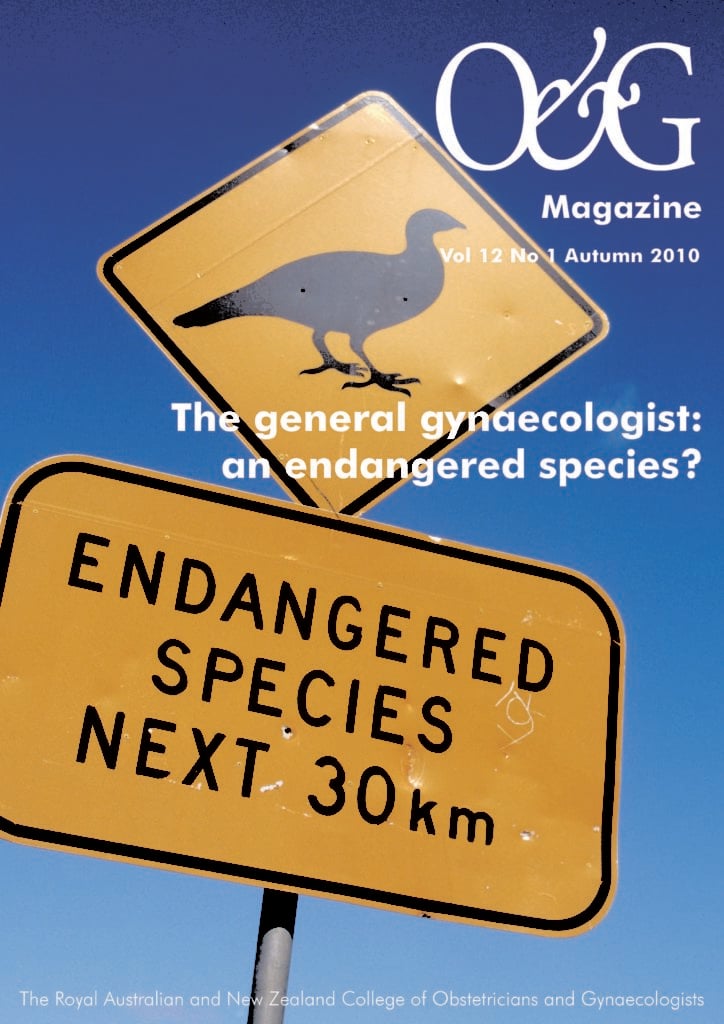Q&a attempts to provide balanced answers to those curly-yet-common questions in obstetrics and gynaecology for the broader O&G Magazine readership, including Diplomates, Trainees, medical students and other health professionals.
What advice would you give a 55-year-old woman with low libido?
The first thing to do is to determine whether the low libido is distressing the woman1,2 and whether this situation is new or long-standing. Another essential factor is whether the woman otherwise has a good relationship with her partner and if she still finds him/her attractive. A careful assessment of mood is important to exclude depression or anxiety.3 Assess the woman’s general health; does she have significant co-morbidities that may be causing secondary lowered libido? Assessment of medication use may reveal potential inhibitors of libido, such as SSRI (selective serotonin reuptake inhibitors) anti-depressant use.4 Examples of important pathologies to exclude: anaemia, iron deficiency and thyroid dysfunction.
A general screen for sources of stress is important, including financial, family, job, or other factors. Is libido hampered by the presence of teenagers or adult children still living at home? Is the woman too tired in general to be bothered with intimacy? Ask if libido improves whilst on holiday, on romantic getaways, or when children are absent from home.
A careful assessment for the sequelae of estrogen deficiency should be made, asking about the presence of vaginal dryness, dyspareunia and current strategies used to address these problems, if present. Does she have any other genito-urinary or vasomotor symptoms? Is she sleep-deprived due to persistent hot flushes or night sweats? Does she have any other symptoms suggestive of androgen deficiency, such as amotivation, lowered mood or persistent fatigue?5
Management should be targeted to the likely cause and may include counselling, alternative anti-depressant use, stress reduction techniques, etc. If the woman is otherwise healthy, has a good relationship with her partner and the most likely cause is menopause-related estrogen deficiency, then reasonable options include regular use of Replens or vaginal estrogen if genito-urinary symptoms predominate, and a trial of systemic estrogen and progestin-based HRT (the latter essential in those with intact uterus), if genito-urinary and vasomotor symptoms co-exist. If symptoms suggestive of androgen deficiency are present and serum testosterone levels are low/low-normal, the woman may benefit from a trial of testosterone treatment.6,7
Female sexual dysfunction is an evolving area of women’s health. Participation in a research study may offer the woman an option for exploring treatment strategies. The Australasian Menopause Society website (www.menopause.org.au) lists studies that are currently recruiting.
References
- Diagnostic and statistical manual of mental disorders: DSM-IV-TR. 4th edition; text revision ed. Washington, DC: American Psychiatric Association; 2000.
- Leiblum SR, Koochaki PE, Rodenberg CA, Barton IP, Rosen RC. Hypoactive sexual desire disorder in postmenopausal women: uS results from the Women’s International Study of Health and Sexuality (WISHeS). Menopause 2006;13(1):46-56.
- Davison SL, Bell RJ, LaChina M, Holden SL, Davis SR. The relationship between self-reported sexual satisfaction and general well-being in women. J Sex Med. 2009; 6(10):2690-7.
- Montejo AL, Llorca G, Izquierdo JA, Rico-Villademoros F. Incidence of sexual dysfunction associated with antidepressant agents: a prospective multicenter study of 1022 outpatients. Spanish Working Group for the Study of Psychotropic-Related Sexual Dysfunction. J Clin Psychiatry 2001; 62 Suppl 3:10-21.
- Bachmann G, Bancroft J, Braunstein G, et al. Female androgen insufficiency: the Princeton consensus statement on definition, classification, and assessment. Fertil Steril. 2002; 77(4):660-5.
- The role of testosterone therapy in postmenopausal women: position statement of The North American Menopause Society. Menopause 2005; 12(5):496-511; quiz 649.
- Wierman ME, Basson R, Davis SR, et al. Androgen therapy in women: an Endocrine Society Clinical Practice guideline. J Clin Endocrinol Metab. 2006; 91(10):3697-710.






Leave a Reply